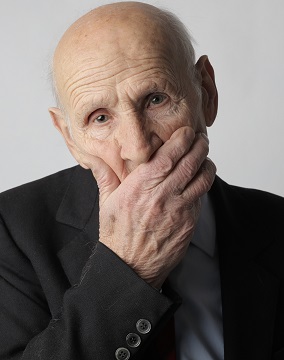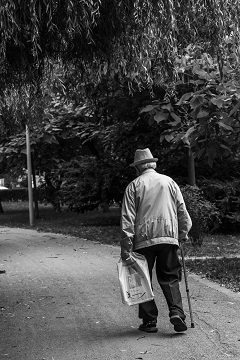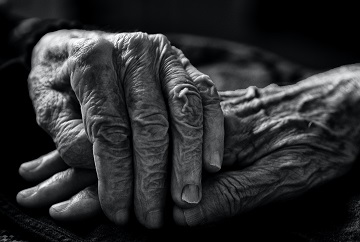MEMORY PROBLEM IN OLD AGE: WHEN IS THIS ABNORMAL?
– Lugina Miranda

Abdul is a 75-year-old retired government officer who is living with his wife, son, daughter-in-law and grand children. Over the past few years, Abdul has become increasingly forgetful and his family members thought that he is ‘just growing old’. However, the forgetfulness kept getting worse so much so that one day he lost his way around his own home. He started forgetting the names of his relatives, including his favorite grandchildren. He says the same things again and again. His behavior became unpredictable- on some days he would be short-tempered and would easily lose his temper or sometime he would sit for hours without uttering a word. Abdul’s physical health also began to deteriorate. Abdul was taken to a hospital where a special scanning of the brain was done: This showed change in the structure of the brain which confirmed that Abdul had ‘dementia’!

Dementia is progressive illness, typically found in older people, especially those who are more than 65 years of age. This illness begins with forgetfulness and it continues to get worse as time passes and leads to behavior problems. Dementia is a disease where the brain gradually degenerates. At present there is no cure and most victims will gradually become worse and die within a few years.
We associate growing old with becoming absent-minded and our mental abilities gradually fade as we grow old. However, this does not mean we forget who our relatives are or where we live or some other important facts. The memory loss of dementia is much more severe than normal ageing.
Alzheimer’s disease is the most common cause of dementia. Dementia traverses a spectrum from mild to severe dementia.


Early stage: The person seems to be confused and forgetful about things that have just happened. Concentration and decision making becomes difficult. One may lose interest in day-to-day activities.
Middle stage: Forgetfulness mood and behavioral changes become more severe. Behavioral problems such as aggression and sexual problems may occur. The elderly person may wander out of the house. Sleep becomes very disturbed and their ability to look after themselves becomes affected (misplacing things and difficulties in simple activities such as bathing, feeding and dressing). They may have difficulty with talking and understanding everyday conversations.
Late stage: The person no longer recognizes friends or relatives. Loss of speech, weight and bladder control; total dependence on the care taker are some of the symptoms in the severe stage. They may appear confused all the time. Death usually follows soon often through pneumonia or other infections.

When an elderly person starts behaving in an unusual manner, it causes the family a great deal of distress. Caring for an elderly person with dementia can be a very stressful experience. A caretaker often needs counseling to understand elderly persons and their needs. It is necessary to educate the caretaker about dementia and what to expect from them. Also, a lot can be done to make the elderly person more comfortable and life less stressful for the caretaker.


Practical tips for dealing with elderly person with dementia:
• Treat elderly person with respect and dignity. Do not talk negatively about him in his presence.
• Avoid confrontation and arguments. Keep yourself calm.
• Establish regular routine, this will make life a lot uncomplicated.
• Keep tasks simple.
• Have easy-to-wear clothing and allocate plenty of time to wear them.
• Write reminders like the days and dates and also labeling approach to the bathroom etc.
• Use an identification bracelet or necklace.
• Keep the doors of the house locked.
• Show love and affection whenever possible: A hug is worth hundred pills.
• Laugh with the elderly person (never at her/him).
• Try to comfort them: hold hands firmly and talk gently.
• Avoid unnecessary medicines.

Activities of daily living could be assisted. Encourage self feeding by using fingers. Food should be served in small bite-size pieces in a ready- to- eat state. Dresses should be comfortable fastened with easy fasteners like Velcro. Keep clothes in the order of dressing. These would all go a long way in making life easier. One step direction, speaking concisely, using gestures, writing reminders, showing interest are some of the tips on better communication. In order to improve sleeping habits- restrain sleep during the day, observe regular bed time routines and light exercises are recommended.
It is also suggested that more than one person should be involved as a regular caretaker so that the elderly person can identify with at least two people. In this way they can take turns to look after the person

